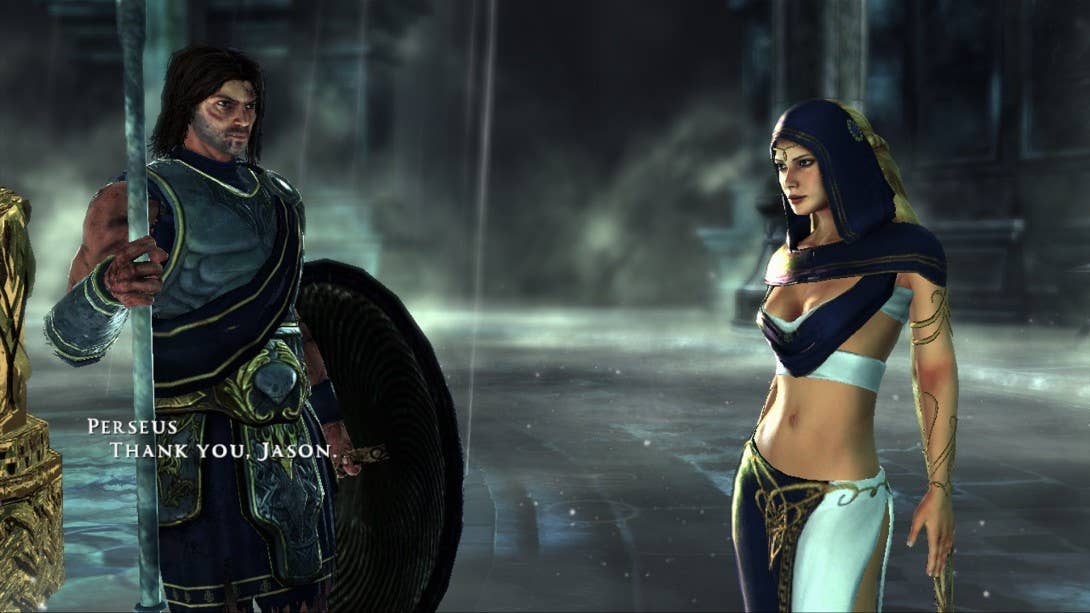Hidden Gems of Game Design: Volume 13
Uncovering precious gems with Alwa's Awakening, Stratosphere, and Rise of the Argonauts

There are plenty of amazing games that go unnoticed and are not widely played for one reason or another. Maybe it's a diamond in the rough, or the marketing wasn't there, or it could be a game ahead of its time. For this monthly series, I've asked my fellow writers on SUPERJUMP to pick a game they think is deserving of a chance in the spotlight. Let us know your favorite hidden gems in the comments.
Josh Bycer
Alwa’s Awakening (2017)

Platforming is, and will continue to be, the go-to genre for dev teams of all sizes and skill levels to build a game around. Over the 2010’s, this peaked with platformers being the most designed genre, up until trends changed with the deckbuilders and Vampire Survivor-likes. A game that came out around the tail-end of this trend that I really enjoyed was Alwa’s Awakening and its sequel Alwa’s Legacy (released in 2020)
Alwa's world is in danger – monsters roam the land and a great evil threatens everyone. A girl from another world is summoned in order to save the land, and she will need the help of magic powers to do so. The game is a modern retro platformer adventure. While you will be fighting enemies, the bulk of the gameplay is built on puzzle-solving that focuses on movement. Like a Metroidvania, how you move around in the game will change as you acquire more powers. You are armed with 3 main spells, one that summons a cube for standing on and hitting switches, one that creates a bubble that is a gradually rising platform, and one that can send out a blast of energy. The first two act as your movement options and can be upgraded to do additional functionality. The game is heavily set around sequence breaking and speedrunning, as crafty players can use these powers to skip ahead or get upgrades earlier than normal.

The world itself has the kind of nonlinear/linear design of classic action-adventure games. While you can go everywhere, accessing the major quests and dungeons will require you to have specific powers and upgrades first.
Like any good action-adventure, there is a lot to take in with Alwa’s Awakening. The difficulty does elevate a bit near the end when the game starts to demand you combine your abilities, especially for the boss fights. I enjoyed both games, as titles that are far deeper than they may look from the outside, which could be the reason why it remained a hidden gem.
By 2017 and onwards, people were starting to feel burnt out when it came to platformers, especially pixel-art platformers. With the sequel, the game updated the graphics and aesthetics to the 16-bit era, but it wasn’t enough to attract as many people to it. By 2020, we’ve seen how much game design and indie dev have evolved, and that it is much harder to stand out. With both Alwa’s, they don’t necessarily go above and beyond for the genre, but are both really great examples of action-adventure design and platforming puzzle gameplay. The sequel expands on the abilities you get, as well as the late-game difficulty.

The games tell an interesting story that I don’t want to spoil here, but there is actually a story reason why the game jumped from 8-bit to 16-bit in terms of its style. If you enjoy 2D platformers, I highly recommend playing both games.
Andrew Johnston
Stratosphere: Conquest of the Skies (1998)
The period around 2000 was an interesting one for PC games. The market was becoming more mainstream and accessible, yet there was still a clear distinction between games for the computer and the consoles. This was fertile ground for experimentation, which didn't always work out. Stratosphere was one such experiment. Not a city builder, not an RTS, certainly not an arcade flight sim, but with aspects of all of them, Stratosphere was just a little too irregular to market effectively.
Stratosphere takes place in a science fiction universe defined by a class of minerals known as "floatstone" which are inexplicably lighter than air and hover a few miles above the planet's surface when set free from the earth. The kingdoms of this planet make use of floatstone to construct a new type of superweapon: Flying fortresses that wed the defenses and armaments of a fixed installation with the mobility of an airship. The player takes charge of one of those flying fortresses, tasked with hunting down and destroying the fortresses of national rivals.
Each fortress is assigned a rating which determines the amount of floatstone available for its construction. This can be used to upgrade the palace, which determines the maximum size of the fortress, and upgrade the tech level, which unlocks new buildings. Whatever is left is used to build weapons, thrusters, defenses, and support structures, plus the power plants needed to keep it all running.

There's a lot of flexibility in how one designs a fortress. Weapons range from conventional ballistic weapons to sci-fi staples like lasers to a massive floatstone-shredding drill called an augur. The low-tech aficionado can even just line the front of his fortress with metal spikes and smash directly into an opponent. Propulsion is also an issue. Most fortresses will move with about as much grace as you'd expect from a giant rock covered in artillery and jet boosters, but one can also create a design that turns on a dime, hits top speed in seconds and stops just as fast. Of course, one has to give up some armor and armaments to free up resources for this!
The actual gameplay is pretty simple - approach another fortress, point the mouse at what you want to destroy and hold down the mouse until it blows up. However, there are also real-time strategy elements. In a protracted battle, a player may need to repair structures or reassign power if a generator is damaged. One needs to keep track of floatstone resources to keep up maintenance - without that, even a big fortress can quickly crumble under a concerted assault.
Stratosphere's Achilles heel is definitely its single-player campaign. The player begins with a bottom-rated fortress and has to slowly build it up and research new buildings using resources collected in each level. I think the idea was to give the player an RPG-like feeling of continuity, but the need to spend hard-earned resources to repair damage in each level (damage the player is sure to incur due to the savage difficulty of the introductory levels) means that multiplayer was always the way to go for most people.
Ultimately, I think Stratosphere suffered due to having gameplay that was just unorthodox enough that it couldn't be slotted into a genre. This must have made marketing very hard, which might explain the silly ads featuring edgy 90s people screaming about their fortress designs. Ironically, these ads made no sense unless one was at least somewhat familiar with the game (from a review, say) and I can't imagine they inspired much curiosity. That's a shame, though - punitive single player mode aside, Stratosphere has some very interesting mechanics that should have been more thoroughly explored.
Antony Terence
Rise of the Argonauts (2008)

An action-adventure with a Greek myth setting is bound to drawn comparisons to God of War. And while Rise of the Argonauts might not meet Kratos in visceral combat, it does get some other things right. The game is a reinterpretation of mythical hero Jason’s grand Avengers-level plan to retrieve the Golden Fleece. A lot of facts from the source material was thrown to the four winds but the result makes for an adventure that can still appeal to myth buffs.
Jason, ruler of Iolcus, is wrought with grief as a shadowy cult murders his wife Alceme. Determined to bring her back to life, he goes on a hunt that takes him across three regions, each brimming with unique flavour, characters, and side quests. Mycenae, Saria, and Kythra are places I remember fondly to this day. The game even takes you to Tartarus and back. I just wish I didn’t have to go through two screens to open a damn map.
Critics might not have loved how it all panned out, but I rarely encountered the frame drops and glitches that made the game nigh unplayable for some people. As a child, going through the plot and finally thwarting the real enemy felt incredible.
While the game has its fair share of combat, you’ll spend a lot of time in conversations with decent voice acting and dialogue. This is important because the choices you make have an impact on the powers you wield in battle.
In combat, you can use powers from one of four Greek gods: Apollo, Ares, Athena, and Hermes. You obtain points to level up your affinity with these gods by making dialogue choices in accordance with their personalities. The wheel looks like it was borrowed from Mass Effect. Witty retorts, for instance, garner the approval of Hermes. The main storyline itself is largely unaffected by these choices so speak your mind. The perk system also lets you devote deeds (tasks like killing a set number of monsters) to gods that you want to build a rapport with. The skill trees are, for once, enchanting as they take the shape of constellations across the sky.

The three aforementioned regions are devoted to Ares, Athena, and Hermes. Clearing the main questline in a region grants you a special weapon. And while there are other means of acquiring weapons in the game, these three will quickly become a permanent part of your arsenal. Weapons come in one of three styles: the swift sword, the brutal mace, and the lithe spear.
Each weapon type has its own powers and are potent against different types of opponents. Crushing a shield with the mace, then tossing a spear into a foe before decapitating him with the sword was immensely satisfying. You also get to add two companions to your squad, renowned fighters from Greek mythology that feature unique abilities of their own. This kept combat from getting stale but it did get tiring after a while. The enemies themselves were interesting, with each region bringing new threats into the fold.
Rise of the Argonauts packs hours of dialogue and adds an overpowering RPG flavour to an action game. I guess Liquid Entertainment got carried away and switched from teaspoons to dropping the entire seasoning into the mix. It’s a decision that I didn’t mind but I can understand why players found it frustrating. The visuals, while vibrant, weren’t doing the consoles any justice at the time either. Its soundtrack was appropriately grand, though.
Personally, I’m just glad someone told Jason’s tale, even with their own twists and turns. Dialogue choices that affected combat was another nice touch that more games should draw inspiration from. If you’re into Greek mythology and don’t mind a game with rough edges, Rise of the Argonauts’ winding tale will certainly stir your heart.


